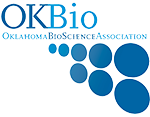By Scott Meacham
Copyright © 2018, The Oklahoma Publishing Co.
Entrepreneurs never have enough time or money. That’s a hard, cold fact. Another hard, cold fact is that venture capitalists often avoid investing in Series A rounds if equity in a company is more diluted than they like.
And a third hard cold fact is that in the pressure cooker atmosphere of a startup’s first 18 to 36 months, many entrepreneurs don’t automatically recognize when a decision that seems smart and easier on its face isn’t necessarily so — especially when it comes to raising capital.
One of those “easier” ways is a fundraising instrument called a SAFE (simple agreement for future equity). It was invented about five years ago by the people at Y Combinator. (Y Combinator is a West Coast incubator/accelerator that makes small seed stage investments in many early stage companies in return for 7 percent equity.)
A SAFE is neither equity nor debt — it’s simply cash given to the startup in return for the possibility of future equity at a hoped-for future round of equity funding or a liquidity event. The idea behind SAFEs was to provide relative fast cash to a startup via an instrument that was efficient and fair for companies and investors alike.
However, in the real world — especially the real world between the coasts where we live — SAFEs are not the simple, easy funding solution that entrepreneurs assume them to be. There isn’t protection for the SAFE investor if the company doesn’t succeed or if the company’s success comes slower than anticipated. With a SAFE, there is no interest in the company’s equity like with a Series A and no debt obligation that is convertible to equity like with the convertible notes that have been traditionally utilized for funding a company in its earliest stages. Also, the instrument lacks the minority investor protections typical of traditional funding transactions.
If the company does make good, SAFEs complicate the company’s capital structure for venture capitalists who come to the table for a true Series A round, especially when a startup CEO doesn’t recognize the true cost of the future equity they are selling off and takes too much financing under a SAFE structure.
Lately, we’ve seen SAFE agreements starting to come up in Oklahoma deals that we were considering. As investors, SAFEs complicate the transaction, both in terms of company valuation and in dealing with prior capitalization of the company. That makes a deal harder to structure, and, for some venture capitalists and angel investors, that can tamp down interest.
SAFEs are just the latest example of decisions that entrepreneurs make about their companies in the early years that can have a far-reaching impact when the company becomes a viable candidate for outside investment.
Without trusted mentors and advisers or experienced service providers who understand the landscape of startups, it is tempting for an entrepreneur to gravitate toward “new” ideas that appear to be easier ways to raise capital than the industry standards of convertible notes or preferred stock equity investments.
That’s why as investors, we work with entrepreneurs and startups before they are ready to raise capital, to help them reduce risk, not add to it by making decisions early on that make the company less, not more, investable down the road.
Scott Meacham is president and CEO of i2E Inc., a nonprofit corporation that mentors many of the state’s technology-based startup companies. i2E receives state support from the Oklahoma Center for the Advancement of Science and Technology and is an integral part of Oklahoma’s Innovation Model. Contact Meacham at [email protected]
